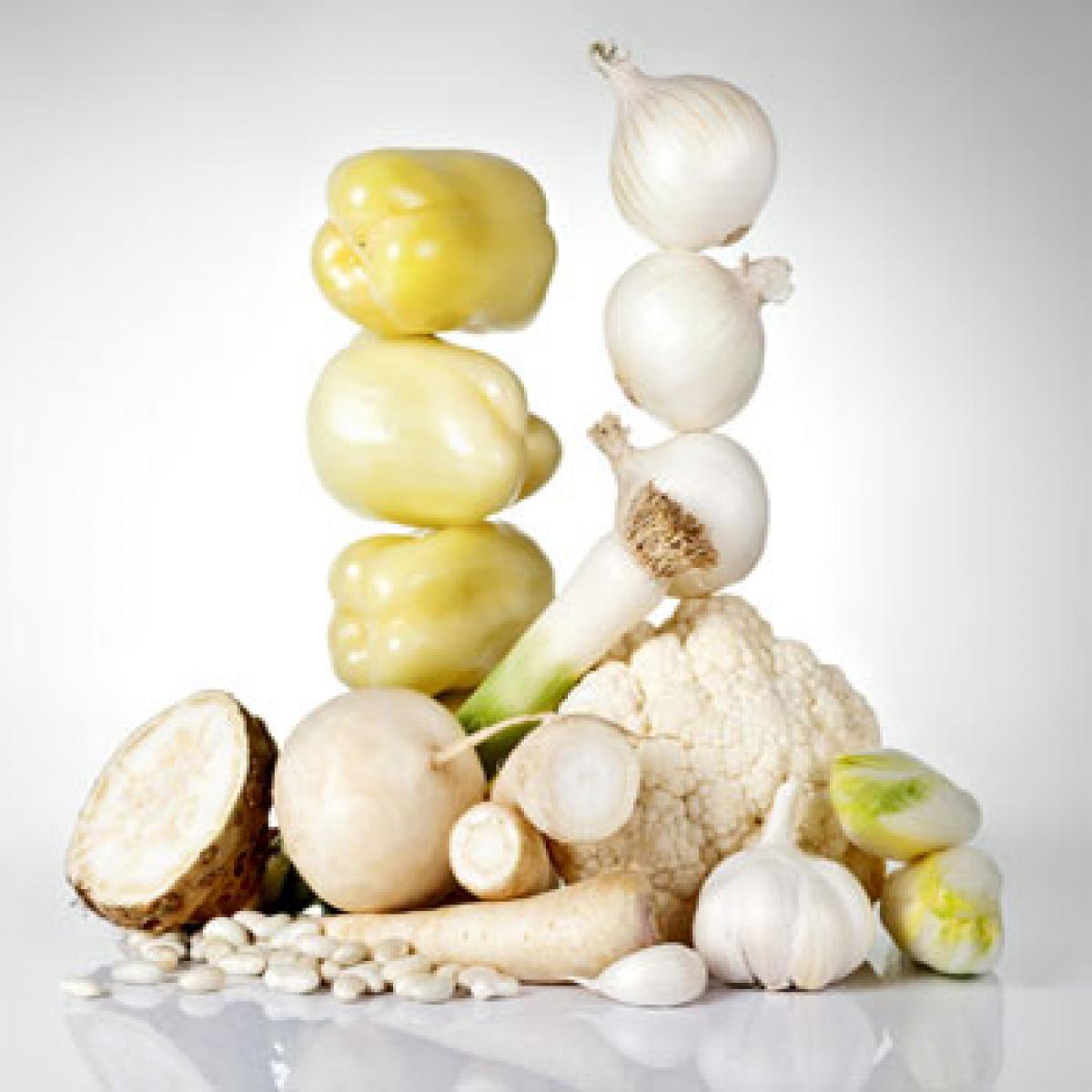White foods that aren’t bad

Not all white coloured foods are bad! Some of the most nutritional, powerful foods are white in colour and are absolutely essential to enjoy great health. One would be surprised to note that ghee makes it to the top of the list.
Nowadays we hear of white foods being bad for health, but good news is that some whites are white gold for our bodies
Not all white coloured foods are bad! Some of the most nutritional, powerful foods are white in colour and are absolutely essential to enjoy great health. One would be surprised to note that ghee makes it to the top of the list.
Healthy white foods
Ghee: Excellent for brain function, immunity, digestion, it has been used since centuries in Ayurveda to cure various ailments. Ghee lubricates joints and helps absorb essential vitamins especially Vitamin D. It also helps hormones to function well. Cow ghee contains good quality saturated fat that is excellent for brain as well as heart health.
Coconut: Coconut is great for brain power as well as absorbing nutrients. Khopra (dry coconut) is great for the hair, skin and eyes as it lowers cholesterol, balances thyroid, improves memory and prevents Alzheimer’s. Make gravies, curries, chutney, add to soup and garnish food with it.
Cashew nut : Cashew nuts are very high in magnesium and calcium. They lower blood pressure, prevent heart attacks, migraine headaches as well as muscle cramps. It is good for heart patients, contains no cholesterol and is low on the Glycemic Index. Due to its zinc content, it prevents formation of gallstones. Eating a handful of cashew nuts as an evening snack is better than oily wafers or sugary biscuits.
Sesame seeds : Also known as Til, it is a very good source of calcium. Has plenty of fibre, hence regulates bowels and prevents constipation. Helps prevent colon cancer, osteoporosis (due to zinc and calcium content). It relieves migraine and PMS symptoms. Sesame seeds add a nutty taste and a delicate crunch to salads and vegetables.
Banana : Bananas contain almost no fat, and they are great as they lower the blood pressure and constipation as well as acidity. They produce feel-good chemicals in the body, which is required in today’s stressful world. I refer to the banana as ‘happiness in a peel’.
White pumpkin (petha)/ash gourd : This is a highly medicinal vegetable, which is ideal for diabetics. It is low in calories, has diuretic properties and is a detoxifier. Ash gourd/white pumpkin is rich in dietary fibre, calcium and sodium, making it ideal for weight loss. It also cures many digestive problems.
White gourd (doodhi) : This is an extremely cooling and soothing vegetable for the body. It has high water content, and even helps prevent constipation. It can also lower blood pressure.
Onion and Garlic: Both are part of the ‘allium’ family, which makes it a powerful antioxidant. There are many kinds of onions, but they have a lot in common. They are anti-aging, as they contain sulphur. Onions keep sunstrokes away plus they are mucus drying, thereby preventing colds and coughs. Garlics lowers blood pressure and cholesterol levels.
Potato: Greatly misunderstood, potatoes contain no fat. They are, however, a carbohydrate source, yet a healthy one. Potatoes can lower blood pressure as they contain potassium and also tryptophan. This nutrient stimulates the production of certain feel-good chemicals in the brain.
Cauliflower : Cauliflower is rich in fibre and goes well with a lot of cuisines. They can help fight cancers. They also have antioxidant properties, and are an excellent protection against breast cancer.
Milk products: Milk is a source of protein. It contains certain amino acids, which are not available in plant-based foods. A small amount of milk can be very filling, making it great for people on-the-go. Curd is another popularly consumed milk product. It is more easily digested than milk and contains trace amounts of Vitamin B12, which is not available in any vegetarian food (but it is not enough to meet one’s daily requirements).
Egg: Egg white is one of the few protein sources that can be called “complete”. It contains all the amino acids that the body does not produce. While the egg yolk contains the same amount of proteins as the egg white, one can have the egg white without the worry of cholesterol from the egg yolk.








